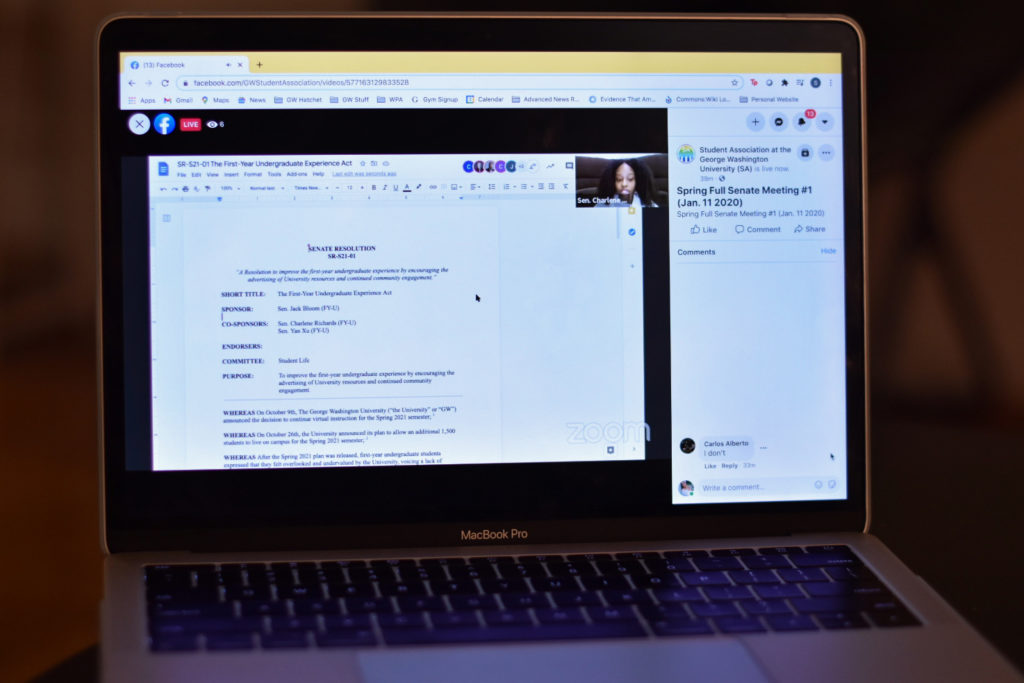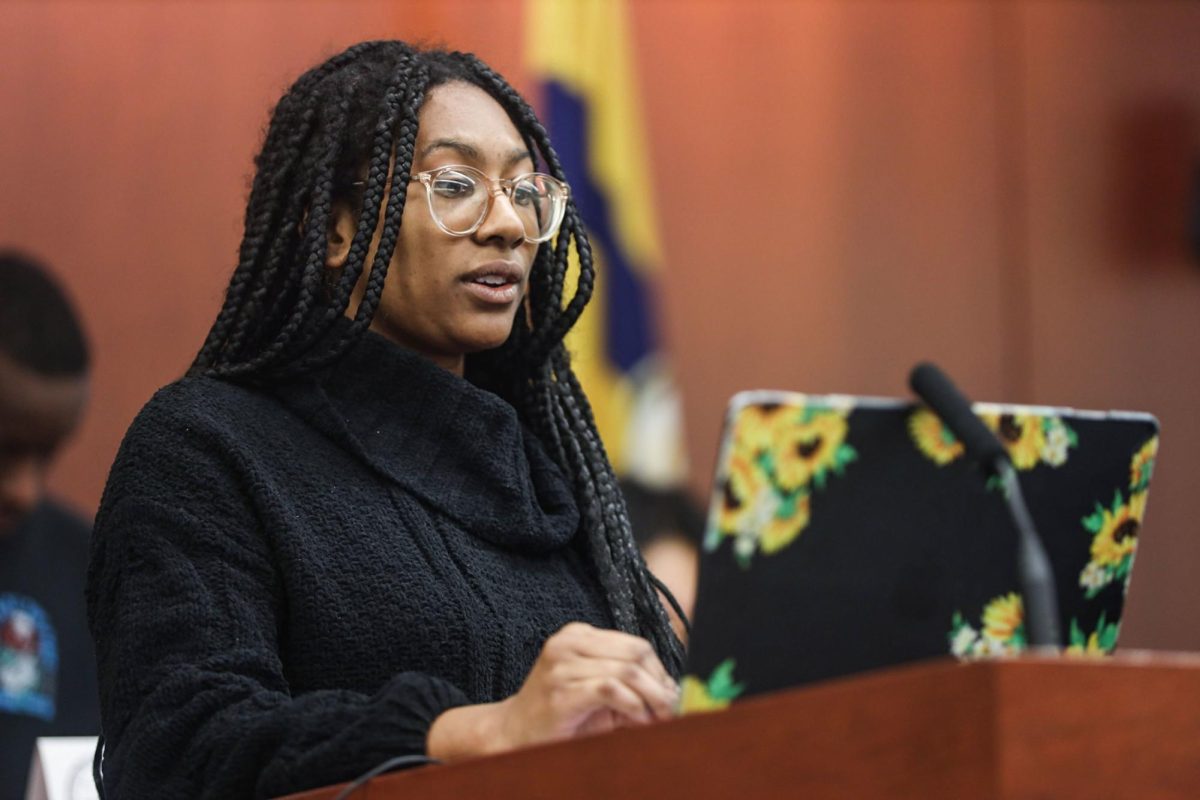The Student Association Senate approved first-year senators’ recommendations for officials to increase social activities and academic support for the freshman class, like increased guidance about available resources for freshmen, at its first meeting of the semester Monday.
Three first-year SA senators presented feedback from more than 300 freshmen, collected through a survey and a town hall last semester, that they are largely unaware of available “University-wide resources” and feel a lack of connection to the University in taking online courses. Senators also voted to convert the current first-year seats to undergraduate-at-large seats to permit those senators voting rights and set guidelines for SA members’ use of electronic platforms and social media for purposes like advocacy efforts.
Senators recommended officials improve the “first-year undergraduate experience” by creating and publicizing instructional videos on how to use campus services, create programming to “bring first-year students together” at least once a month in the spring semester and host at least one town hall in the spring dedicated to freshmen, according to the legislation.
SA Sen. Charlene Richards, U-at-Large and a co-sponsor of the resolution, said a common thread of challenges for freshmen appeared to be accessing certain University resources because they are not aware the resources are available. She said responses also stressed a lack of connection to GW, and she recommended that officials attempt to increase the role of the freshman class in “plans and decisions made by the University.”
“To address these concerns, a few of our recommendations in the senate resolution focus on increasing direct communication between University leadership and students as well as finding a space for current first-year undergraduate students in the future return to campus and orientation plans,” Richards said.
SA Sen. Jack Bloom, U-at-Large and the sponsor of the resolution, said the legislation “formally acknowledges” challenges freshmen experienced during the virtual fall semester.
The senate also voted to add updated language to the SA’s governing bylaws, regarding senate members’ use of technology to advocate for issues in the community and who is responsible for managing the SA’s virtual platforms. The legislation comes after SA President Howard Brookins apologized on behalf of the executive branch for sharing an Instagram post indicating support for Armenia in a war with neighboring Azerbaijan.
SA Sen. Yan Xu, U-at-Large and the sponsor of the act, said the guidelines in the resolution allow senators to collaborate with one another through virtual communication methods. The legislation specifically outlines eight permitted uses of the SA’s social media for purposes like advocacy and awareness efforts, responding to questions from community members and updating the public on SA achievements.
The SA’s vice president for public affairs will “open and manage electronic communication accounts” and hold all usernames and passwords for SA “channels,” according to the legislation. The public affairs vice president and “authorized appointees” can also take down any social media posts or comments on behalf of the SA if they do not abide by the guidelines of the SA’s governing documents, the legislation states.
“Last semester, a repost on the SA Instagram about the Armenia and Azerbaijan conflict let us see the importance of proving outlines for SA electronic communication forms and usage,” Xu said.
Senators also approved Hannah Clayton, the body’s director of the arts, onto the Faculty Senate’s libraries committee and confirmed SA Sen. Jovawn McNeil, ESIA-U, onto the Joint Committee of Faculty and Students – a committee of seven SA representatives and seven faculty members that focuses on academic affairs issues.
SA Executive Vice President Brandon Hill presented the SA’s mid-year report, highlighting actions from the body during the first half of their term, like the SA’s donation of $70,000 to the GW Cares fund. He added that the senate had passed 14 resolutions and 12 bills by the end of the fall semester, which amounts to 157 pages of legislation – more than double the amount by last year’s senate.








